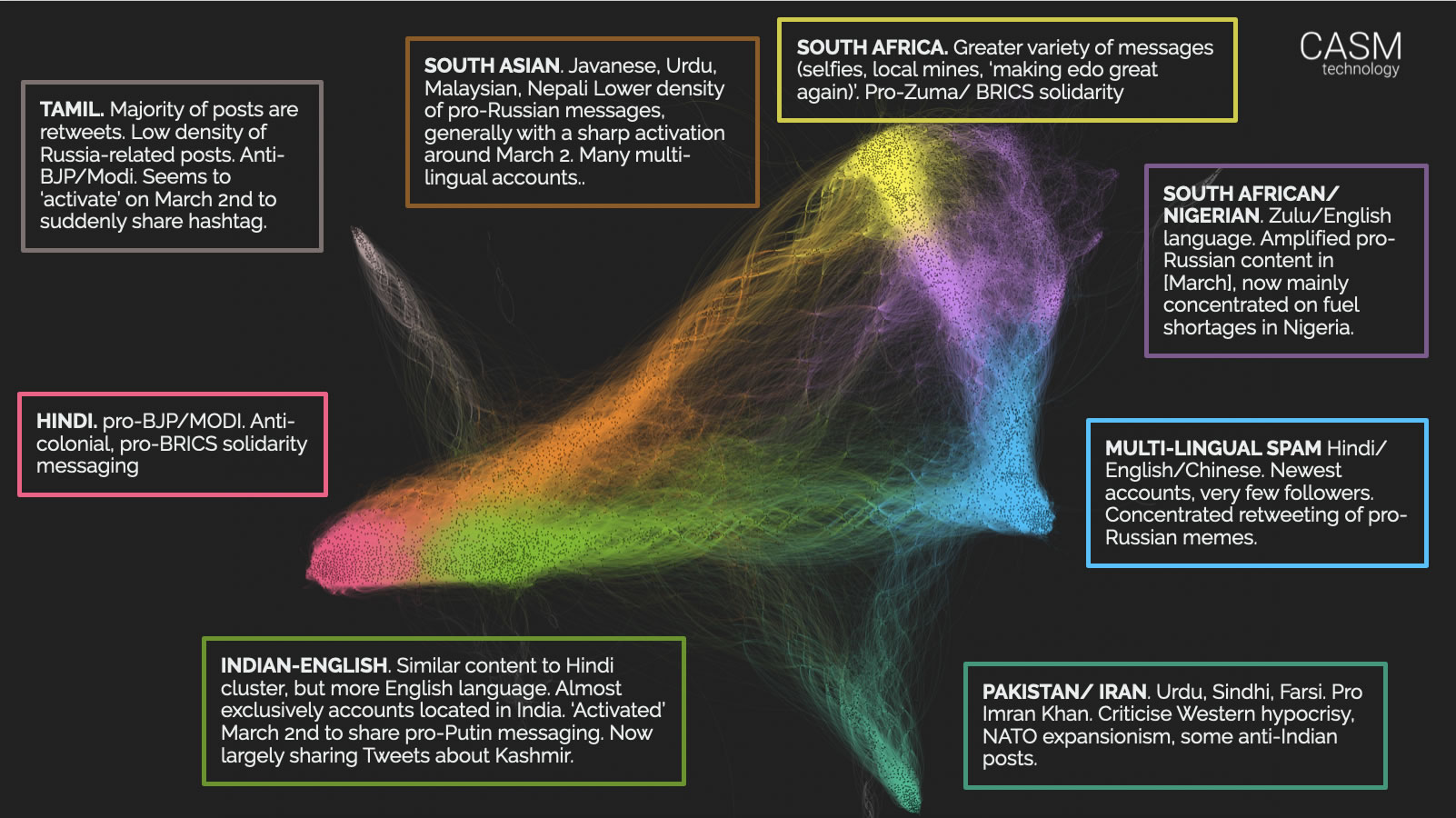Information Operations Regarding the War in Ukraine
Beam has been deployed consistently for the detection and analysis of pro-Kremlin disinformation campaigns since the invasion of Ukraine in February 2022. This project sought to examine the extent to which pro-Kremlin content and narratives were reaching online audiences, in spite of a number of governments, the EU and major tech platforms putting measures in place to curb propaganda. This research has spanned over 10 languages and countries and has leveraged next generation deep learning models, creating opportunities to optimise Beam’s technological capabilities.
In one instance, the ISD and CASM teams used Beam to evaluate the authenticity of accounts promoting content from Western influencers who are known to share Kremlin disinformation about events on the ground in Ukraine across YouTube, Twitter, and Facebook. By retrieving account-level metadata and using Beam to isolate peaks in creation dates, researchers were able to determine that content from these influencers was being boosted by inauthentic accounts, as well as by state-affiliated media and government officials from both Russia and China. This secondary network was found to have propagated pro-Kremlin disinformation to over 41 million Twitter users.
In another case shortly after the invasion, CASM was able to map all of the accounts heavily sharing two popular pro-Russian hashtags: #IStandWithPutin and #IStandWithRussia. These hashtags had begun to trend on Twitter across a number of geographies around the world but the size of each, and the connections between them, remained unclear. This analysis allowed for a visualisation of the online communities engaging with it, clustered by their various languages (see image).
This model placed each of the accounts heavily sharing the hashtag on a map, depending on their general use of language. This exposed clusters of accounts that had distinctively different national and linguistic identities, including pro-BJP accounts using Hindi, Farsi and Sindhi-using accounts, a Tamil-language cluster and accounts claiming to be from South Africa and Nigeria mainly using English. The investigation suggested that pro-Russian influence (in this instance) was targeting BRICS countries and more broadly the global south.
